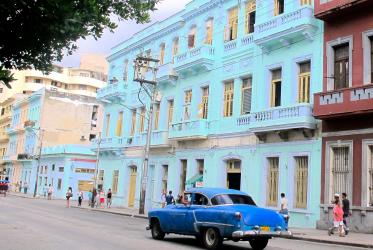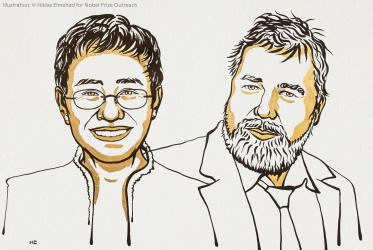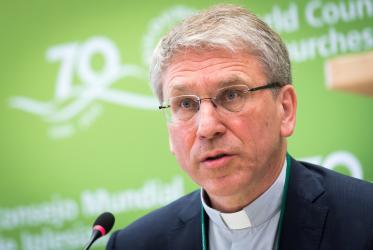Displaying 1 - 20 of 36
WCC congratulates 2021 Nobel Peace Prize laureates
14 October 2021
New student body at Bossey Ecumenical Institute “a source of joy”
14 September 2020
WCC prays for Caribbean region in wake of strong earthquake
31 January 2020
WCC condemns massacre of farmers in Philippines
12 April 2019
All pilgrim routes lead to COP24
11 December 2018
Diakonia: “a tool to reach abundance of life”
24 July 2018
#WCC70: A prayer about health and healing
20 July 2018
Seven weeks of Lent highlight water justice in Latin America
12 February 2018
“Overcoming economic injustice” vision of WCC’s Athena Peralta
23 February 2017
New videos help congregations hasten HIV response
20 October 2016













